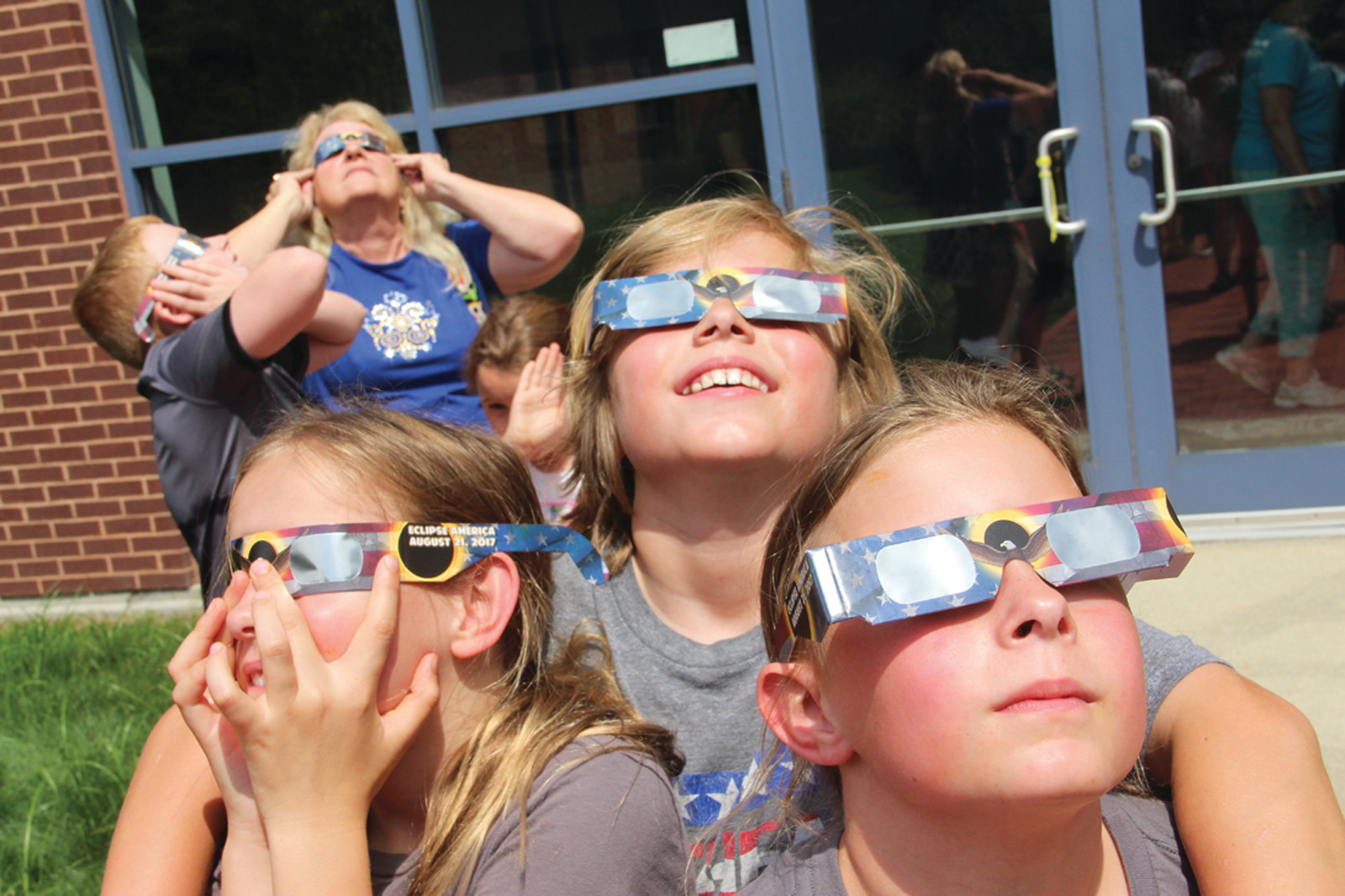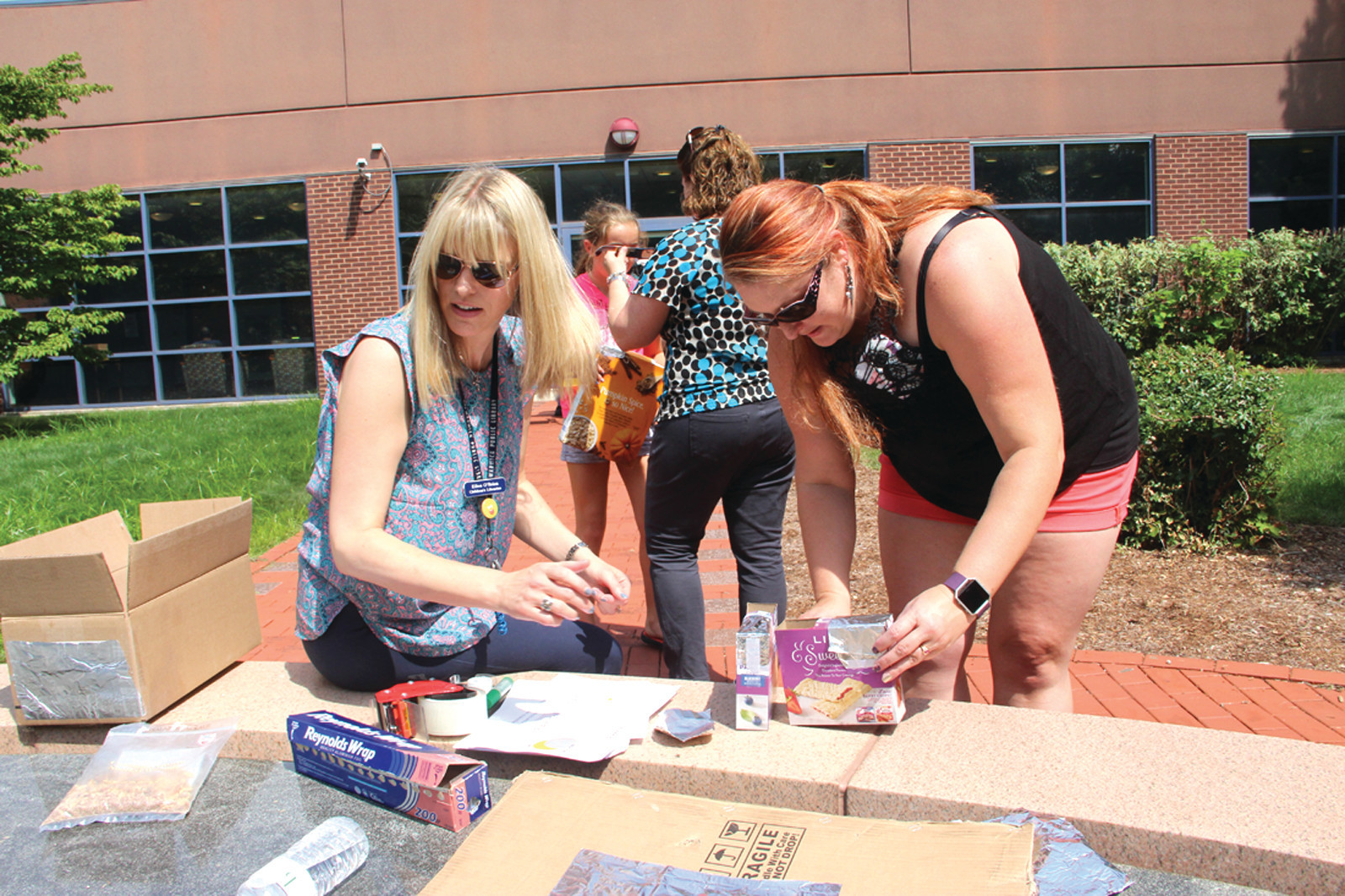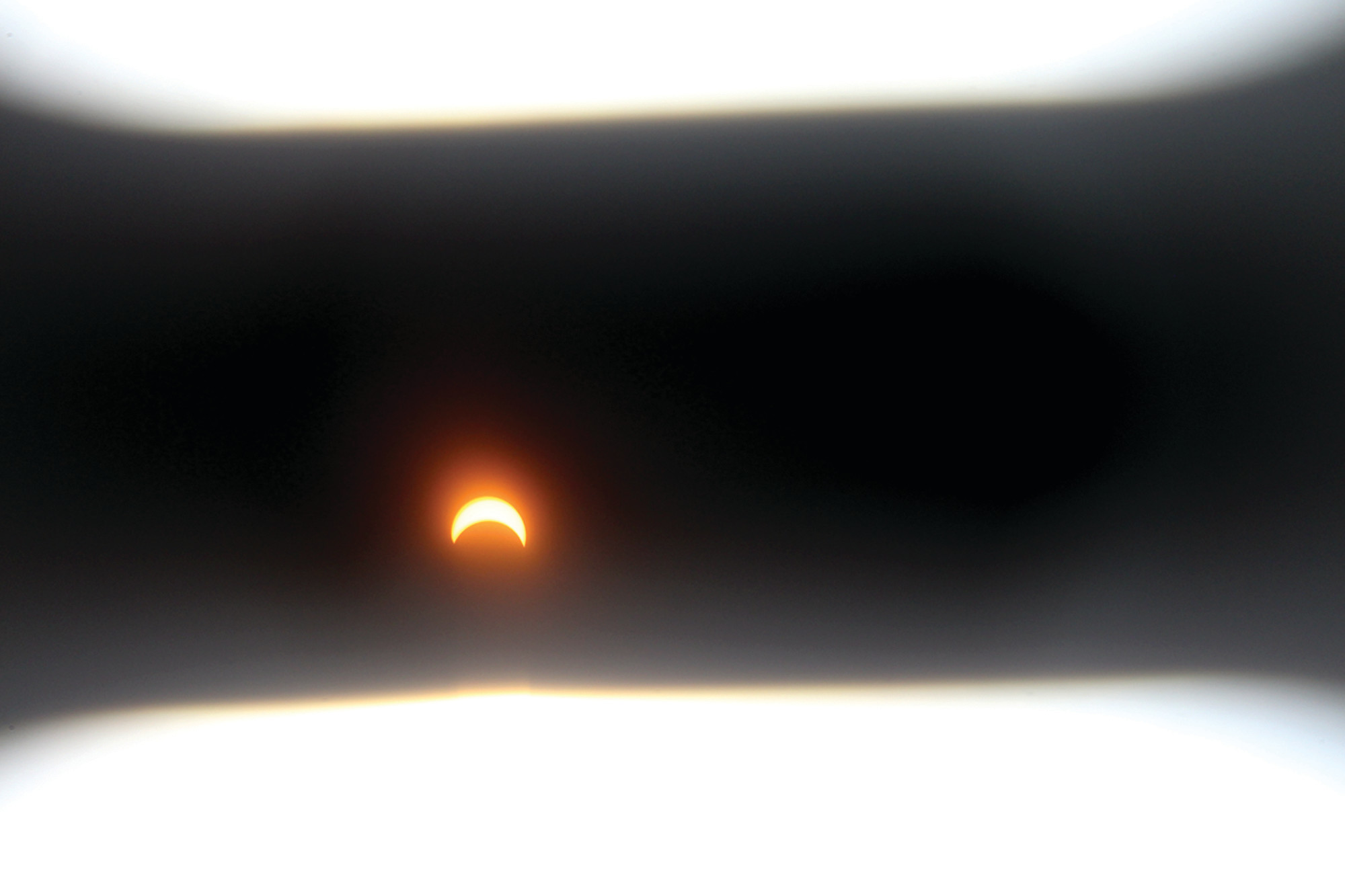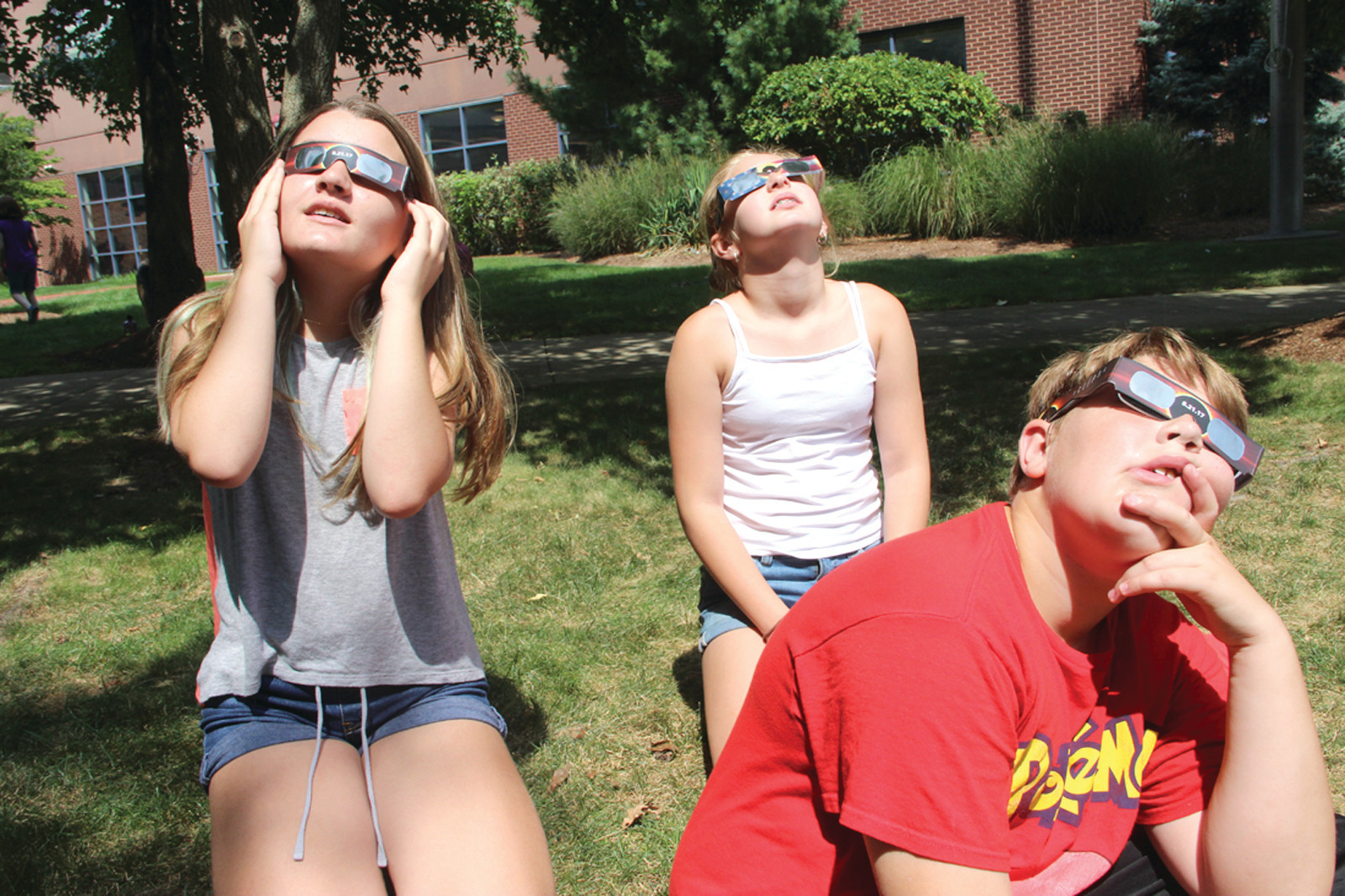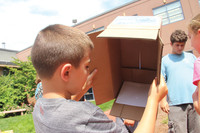Library didn't book on eclipse fans
Six months ago, when the Warwick Public Library’s Assistant Director Jana Stevenson and staff were ordering special glasses for the eclipse, they thought 200 pairs would be enough.
“We were thinking that we would never get rid of them all,” said Stevenson.
They were surprised when, by 11:30 a.m. Monday, the line of people wanting glasses wrapped around the building. The library estimates that about 500 people showed up.
Thomas Nye, retired Major of the Warwick Police and security at the library, had to call in a couple of cars from Warwick Police Department to help with traffic.
“The parking lot and baseball field were full,” said Nye. “Traffic was stopped on Sandy Lane all the way to Warwick Avenue.”
A week ago, the library had been inundated with calls asking about the glasses. Stevenson began to realize that “other libraries were pounding on this,” so the staff hastily put together the event. Although they told people to come by noon, early arrivals started three hours prior.
“People were obviously upset,” said Stevenson. “The 200 pairs were gone in two minutes.”
NASA distributed over two million pairs of eclipse glasses to public libraries across the country. However, because the Warwick Public Library did not have a dedicated eclipse event when the glasses were sent out, they had to purchase the 200 pairs for around $1 each.
“I’m already planning for the next eclipse in 2024,” Stevenson said. “We’re going to order way more and provide an option for reservations.”
There were backup plans in place. Inside the library, there was a live stream of the coverage surrounding the eclipse. Coordinator of Children’s Services Ellen O’Brien was showing families how to create “shadow viewers.” They took a cardboard box, such as a cereal box, and cut two squares off the top. Then, they put a piece of white construction paper at the bottom. They covered one square with aluminum foil and poked a pin-sized hole in it. By looking through the other square, viewers could see the reflection of the eclipse.
“I can see it,” said Frankie Paletta, a student from Our Lady of Mercy who had made a shadow viewer. “This is so cool!”
In Warwick, the eclipse began at 1:28 p.m., reached the maximum eclipse at 2:47 p.m., and ended at 4 p.m., for a total duration of two hours, 32 minutes. Library staff warned sunbathers of the harm prolonged exposure could cause to the eyes, even with the eclipse glasses.



